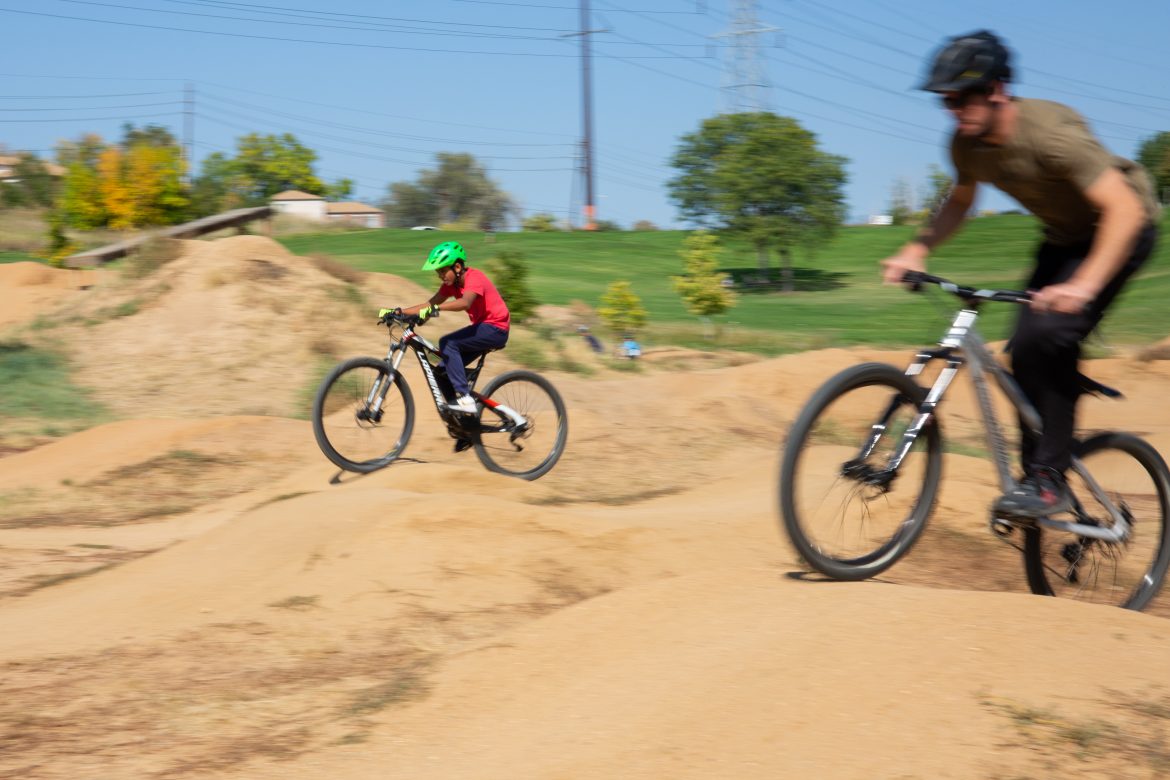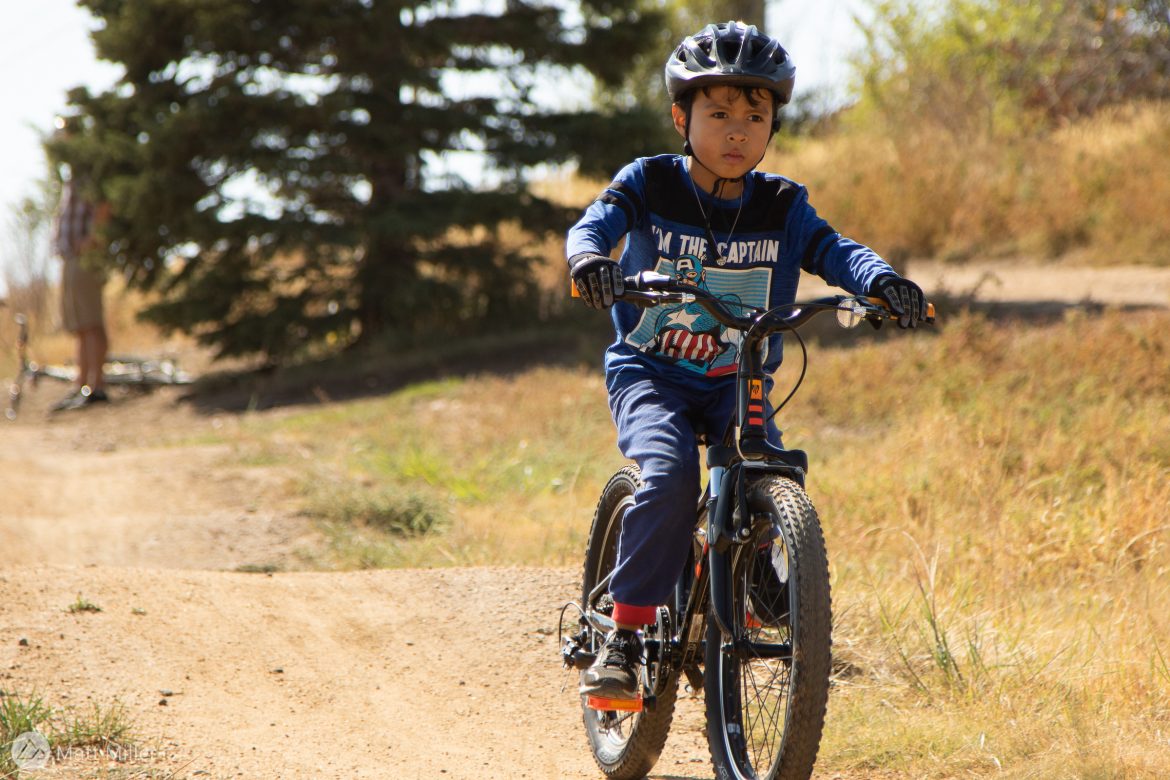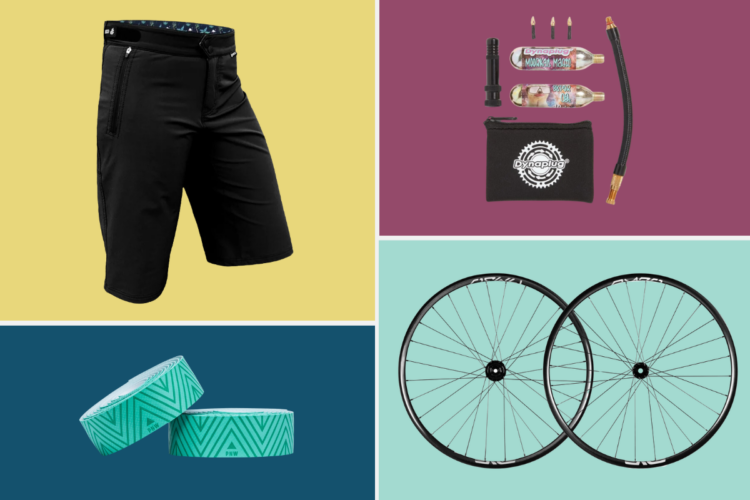
Denver resident Fernando Ibarra was helping his friend clean out his neighbor’s house one day, years ago. The neighbor was getting rid of a few old bikes and Ibarra wanted to hang on to one and fix it up. He took the bike, a 20-year-old hardtail, into a neighborhood bike shop to see if they could fix it.
Ibarra, low on cash, didn’t have the money for the parts. But the shop, Lucky Bikes Re-Cyclery, offered him a deal: Ibarra could spend some time at the shop volunteering and learning about bike maintenance in their Learn to Earn program in exchange for parts. He fixed his bike eventually, and in a cyclical nature, rode it more, and needed more parts to replace the ones he wore down. Naturally, he was spending more and more time at the bike shop, but continued learning about bike maintenance and repair.
Ibarra joined the shop for mountain bike rides through the Lucky to Ride program. “I’d never been on an actual mountain bike trail and whatnot. That was pretty exciting,” he says. And then, his shop manager got him involved in high school mountain bike racing. “I didn’t even know that was a possibility.”
Ibarra drifted from the shop for a bit because of school, but when Covid happened, they needed help and he found his way in there again. Now he’s working at Lucky Bikes full time as a shop tech. He’s always learning something, and wants to continue in the bike industry.
Ibarra’s story mirrors the good intentions of Lucky Bikes and the Lucky to Ride program. Lucky Bikes is positioned in a low-income neighborhood in Denver as a social enterprise bike shop; one that supports the community with access to transportation and bicycle education, and funding from repairs and bike sales helps fund the Lucky to Ride program, which gets at-risk and underserved youth out on mountain bike trails.
Lucky to Ride partners with other nonprofits like the Boys and Girls Club or Colorado UpLift, and Denver Public Schools to give kids who otherwise might never be exposed to mountain biking a chance to ride. The schools they partner with are in neighborhoods where most would qualify for free and reduced-price lunches.
“They bring the kids, we bring the bikes,” says Jon Pasquini, the executive director of Lucky to Ride.
Pasquini was a teacher for 20 years and wants to grow the sport of mountain biking in places where it hasn’t yet reached.

“That was a big eye opener for me when I came to Denver,” he says. “To recognize that you have these kids that live 30 minutes from the mountains and have never been, it kind of rattles you a little bit. That gives you some insight into what experiences we take for granted, and how do we give these other people an opportunity to have these experiences. That’s really what our organization is about.”
Learn to Earn was developed with STEM-based curriculum. There’s a program for 2nd through 4th graders, middle schoolers, and high schoolers. When the kids complete the program, they get a bike, a lock, a helmet, and some tools.
The shop also offers paid internships. Lucky Bikes has six people on staff, with three full-time employees and one part-time employee at the bike shop, a contracted grant writer and a program manager, and the executive director. The shop is full-service and they can do anything from drivetrain swaps to suspension rebuilds. They’re also learning how to service e-bikes.

The bikes they sell are varied and include anything from $75 Nishikis to $3,000 full carbon mountain bikes. All of them are donated.
Pasquini is hoping to start a high school mountain bike team through the Colorado High School Cycling League next year. The league has waived fees for them, Pearl Izumi has donated shoes, apparel, and custom jerseys, and Salsa is sponsoring the team with bikes.
“I don’t really care about competing and the races and all that,” says Pasquini. “It’s more about getting these kids experience outdoors. You know, they get an opportunity to get on a bike, they get an opportunity to get outdoors and then a community that’s different than what they’re in.”
They’re also trying to build interest in the team and make it more approachable as a club at first. Until the club kicks off, Lucky to Ride will still be out on the trails. They’ve done about 50 rides with the Boys and Girls Club alone this year, and also partner with Denver Public Schools and other NPOs.
Alina Acosta is one of Lucky to Ride’s new board members and a teacher at AUL Denver, an alternative high school in Denver. Most of her students are also unfamiliar with the outdoors and mountain biking, she says.
“I don’t think any of my students have mountain biked before. The same thing at my last school too.”
Familiarity is often just the first of many barriers in front of mountain biking, and she’s in a position where she can help.
“I view a lot of my job and what Lucky to Ride is doing as breaking down those barriers. We’re gonna give you a bike, we’re going to give you someone that knows what’s going on and we’re going to take you on a route.”
Lucky to Ride’s ride leaders are sometimes employees, paid contractors, or volunteers. They might lead the group or sweep behind and just ride with the kids. Randy Bristol started leading rides about eight years ago when he and his partner sold their company and he needed something else to do. He’s been doing it ever since.
“The energy of the kids is just awesome. I could use some of that energy,” he says laughing. “Being outside, riding bikes, hanging out with kids. What’s not to like?”

Since it’s usually the first time on the trail for the kids, the ride leaders try to manage their expectations, teach them how to approach hills or the etiquette of being on a trail system. Bristol says that they see kids coming back sometimes, but not always and that’s OK. At least they’ve had a chance to try something new.
“Some kids love it. Some kids, it’s not their deal. It’s our job just to make sure they have a fun and safe introduction to riding.”


















